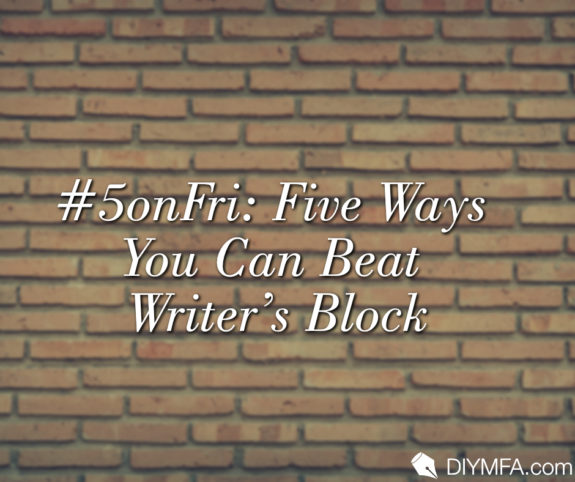Beating writer’s block can seem impossible when you’re lost in the weeds. It’s frustrating to feel like you’re completely stuck and all the good ideas you had have just checked out. In fact, some authors even feel anxious when they sit down in front of their computers to write.
But getting past the writer’s block hurdle isn’t impossible. Let’s look at five ways you can beat writer’s block and get back to being the most productive version of yourself.
1) Read More
Sometimes, the best way to start writing is to start reading. I’m talking about reading books in the genres you love–not books on craft.
When you enjoy reading, you rekindle your love for books and writing in general. And you might find that ideas come to you while reading other books. This can help you overcome obstacles in your own writing.
That said, it’s important not to take too many notes here or focus too much on what the author is doing right or wrong. Just try to completely immerse yourself in a good book and make the enjoyment of the story your main focus.
Beating writer’s block isn’t so much about pressuring yourself to write more, but about remembering what you love about reading and writing in the first place.
2) Research
Research is a great way to get inspired. After you’ve spent time reading and relaxing, you might want to seek inspiration to get yourself writing again. Understanding what other authors have done right is a great way to go about this. Once again, it’s not about pressuring yourself, but researching what works and what doesn’t and how you can improve.
For instance, if you were writing serial killer thrillers, you’d find a great selection of bestselling books in the genre that you could use as research starting points. You can read them or just check out their covers and book descriptions for more inspiration. Write down common themes and even the similarity between their covers. This information might just spark a new idea or breathe life into an old one.
You can also take an online class about structure or plotting to give yourself a clearer direction for your book.
3) Free Write
This is meant to be no pressure writing that helps you unblock the parts of you that are stuck on your current work-in-progress. Just to be clear, you won’t actually be writing anything you plan on publishing. You can free write using prompts or just about your day-to-day life. Anything that gets you putting fingers to keys or pen to pad again.
Here are a couple free-writing ideas you might use:
- Write a letter to your future self. Be positive!
- Write a poem about an event.
- Have a conversation with yourself.
- Scribble down your feelings.
- Write a journal page documenting your feelings.
- Write a private review of the books you’ve been reading.
Remember, though, that this is no pressure writing. Nothing has to come of it, so don’t worry about it being perfect or editing it or re-writing anything. Just sit down and scribble!
4) Interact With Other Authors
Humans are social and it’s important to relate to others who might have the same issues as you do. If you’re unable to meet with authors in person–especially since most of us are practicing social distancing–social media is a great way to connect with writers who have the same issues with you.
Head over to Facebook and search for groups of like-minded authors. There are plenty of support groups and author groups that will allow you to share your thoughts and feelings and sympathize with the problems other authors are having as well.
Also, seeing how other authors handle their issues will help you solve yours too.
5) Listen to Music
This is all about getting in the zone to write and getting inspired. When you’re free-writing or when you’re ready to sit down and get to work on your novel again, creating a playlist that encourages you might help you overcome your fears. These songs can also be inspired by a particular character, setting, or scene you’ve envisioned in your outline.
Also, you can find a few playlists on Spotify created by writers for writers. Here are a few you can check out:
Final Thoughts
Hopefully, these tips will put you on the road to mental recovery and get you in front of that keyboard again. Remember to take it slow and not to place too much pressure on yourself when writing. Have fun!
Cheers!

Dave Chesson is a book marketing obsessive who has consulted for various NYT Bestselling authors. He shares his latest ideas at Kindlepreneur.com, such as his recent guide to book writing software, and also hosts The Book Marketing Show podcast.







